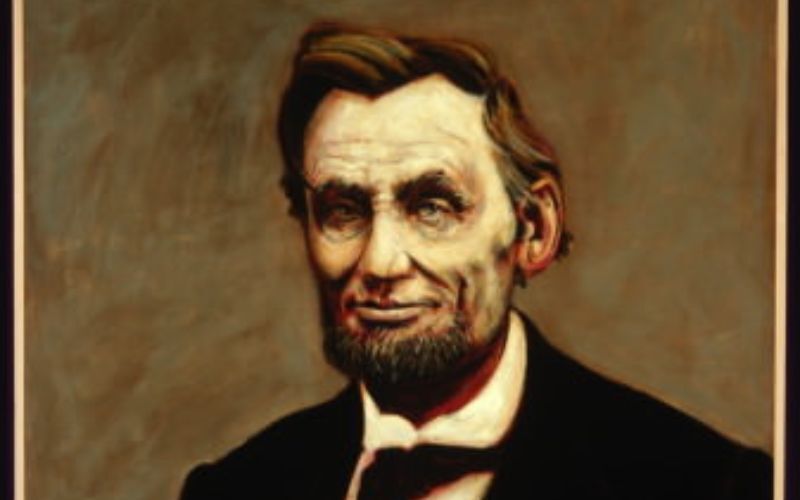Sixteenth President of the United States (1809-1865)
“As I would not be a slave, so I would not be a master. This expresses my idea of democracy.”
Biography
Born in Kentucky into an illiterate, itinerant frontier family, Abraham Lincoln was largely self-educated; yet he grew to become an American icon—the beloved symbol of American democracy and union. His life, his controversial presidency fraught with the division of the country, Civil War and emancipation of the slaves, and his assassination are ingrained in the familiar historical knowledge of every American and need no retelling. Yet his words, revealed mostly in speeches and letters, are timeless in their truth and elegance and continue to inspire and lead through decades of repetition.
In times when their Constitutional rights are threatened by governmental claims, citizens need to recall the truth of Lincoln’s faith in democracy and in the people: “While the people retain their virtue and vigilance, no administration, by any extreme of wickedness or folly, can very seriously injure the government in the short space of four years.” In the same vein: “The people will save the government if the government itself will allow them,” and “The Cause of civil liberty must not be surrendered at the end of one, or even one hundred defeats.”
Lincoln’s masterful “Gettysburg Address,” the text of innumerable Memorial Day observances, is often misconstrued as a patriotic hymn to war, yet Lincoln abhorred military might and the bloodshed of the Civil War. Years before his presidency he stated, “The ballot is stronger than the bullet,” and “…Among freemen there can be no successful appeal from the ballot to the bullet, and …they who take such appeal are sure to lose their case and pay the cost.” He also said, “…Military glory [is the] attractive rainbow that rises in showers of blood.”
His often-quoted words from the Cooper Union Address of 1860 remind us of Lincoln’s understanding of the wise use of power: “Let us have faith that right makes might; and in that faith let us to the end dare to do our duty as we understand it.”

